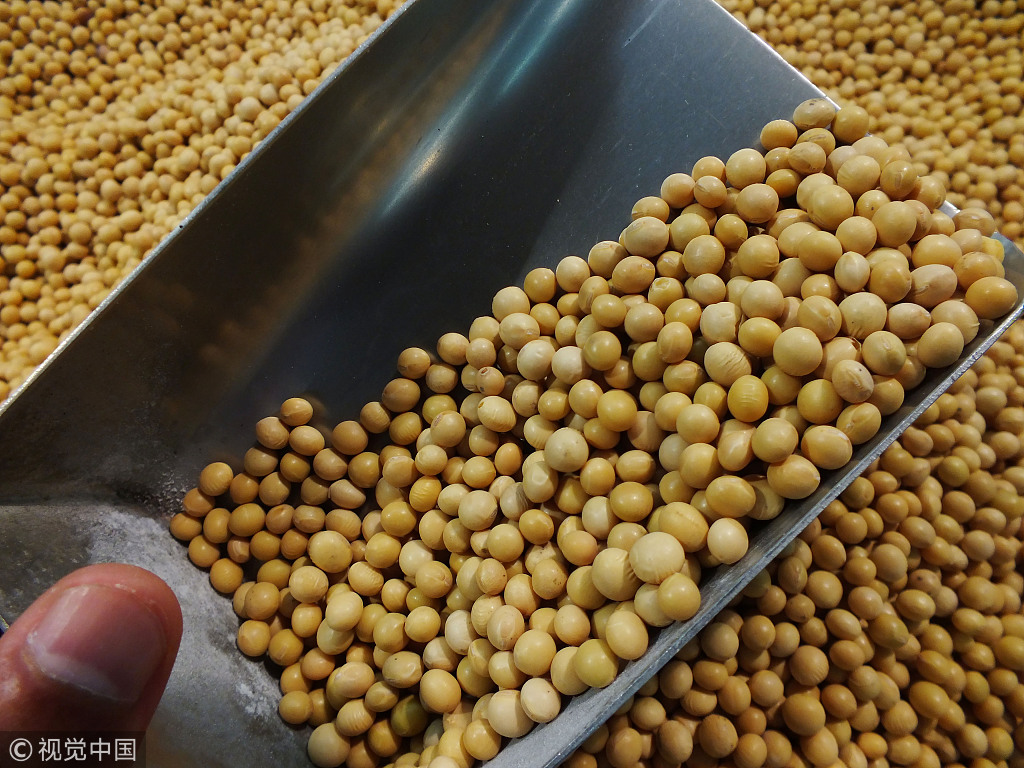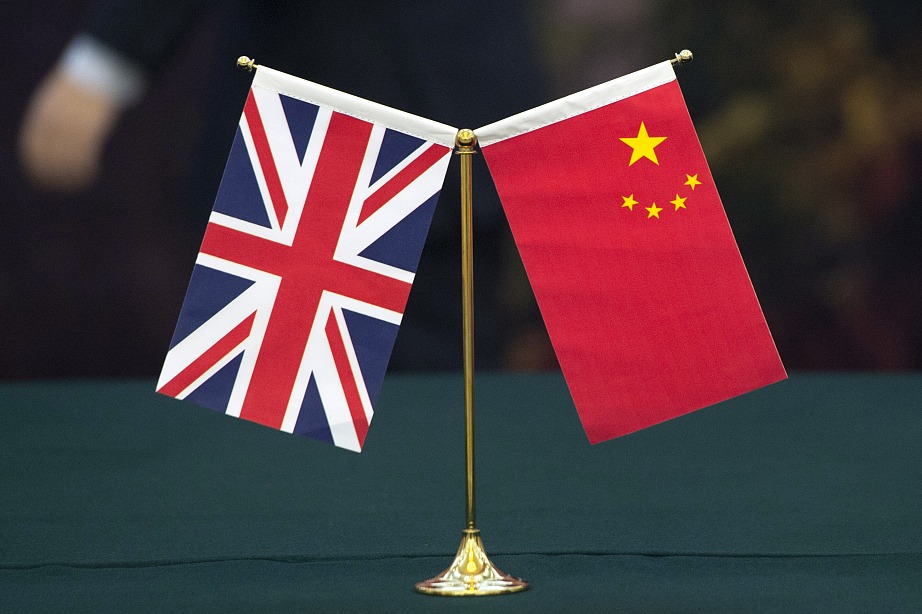US soybean sales could get boost from trade deal, experts say


US soybean sales to China are likely to rebound quickly if a new trade deal is signed soon, agriculture experts said Tuesday.
Wallace Tyner, a professor of agricultural economics at Purdue University, said China purchased soybeans from Brazil during US-China trade negotiations, but a quick resolution of the trade dispute will allow US farmers to regain market share with little or no long-term harm.
"Brazil hasn't had time to improve its infrastructure or expand plantings during the dispute, and couldn't do so without knowing if China and the US would reach an agreement," Tyner told China Daily. "Both take planning — and money. Estimates of long-term harm to American farmers were based on a protracted dispute."
"If China instructs organizations to buy more soybeans from the US as part of the trade deal, that would accelerate the process of reverting to historical precedent," Tyner said. "That would mean Brazil wouldn't capture market share long term."
Tyner said much of last year's US soybean harvest is in storage and can be shipped quickly to China if the trade deal calls for increased soybean purchases by Beijing. This year's crop will be harvested in October, allowing ample time for current stocks to be sold and shipped.
Without knowing the details of the expected agreement between China and the US, it's impossible to know with certainty how quickly the soybean market will stabilize, Tyner said.
Peter Goldsmith, professor of food and agribusiness management at the University of Illinois, said the US soybean market will rebound, but not immediately.
"The market will respond quite well," Goldsmith told China Daily. "A soybean is a soybean. US soybeans have slightly higher protein and can be shipped more easily. It's not like Brazil can give great concessions to China and build a strong relationship that won't be broken by US beans coming on the market in November.''
Overall, Trump imposed tariffs on Chinese goods valued at about $250 billion. He later threatened to impose tariffs totaling an additional $267 billion if a deal could not be reached. In response, China slapped tariffs totaling $110 billion on US goods.
In late February, Trump said he and Chinese President Xi Jinping had made "substantial progress" in reaching a trade deal and announced that he would delay the threatened increase in US tariffs scheduled to take effect March 2. Announcement of a trade agreement may come soon.
Grant Kimberley, director of market development for the Iowa Soybean Association, said the trade dispute has cut US exports to less than 5 million metric tons this year from 36.8 million metric tons two years ago, and he believes US soybean farmers have lost much of the export market.
"China's demand just isn't big enough to absorb Brazilian and American crops in six months unless the Chinese are willing to purchase extra supplies and put them in storage,'' he told China Daily. "Otherwise, we won't work through the current large stocks in a snap of a finger. Long term, things may be better. The devil is in the details.''
He said there is no significant difference between American and Brazilian soybeans, but strong and extensive distribution infrastructure in the US gives it an advantage over its South American competitor. The harvest seasons are about six months apart because the seasons are reversed in the Northern and Southern hemispheres.
"There are real trade issues that need to be addressed," Kimberley said. "If both countries find common ground and make solid commitments, the long term should be better for both countries," Kimberley said.
West Higginbothom, who farms 4,000 acres in Arkansas about 25 miles southwest of Memphis, Tennessee, and serves on the Arkansas Soybean Promotion Board, said he and other farmers are optimistic about a new trade deal with China.
"I think a lot of farmers are holding grain to see if prices rebound," Higginbothom told China Daily. "With everything in limbo, the most difficult thing for farmers recently has been securing financing and deciding which crops to plant this year."
Resolution of the dispute soon would give him ample time to select this year's crops and to secure production financing, he said.

































